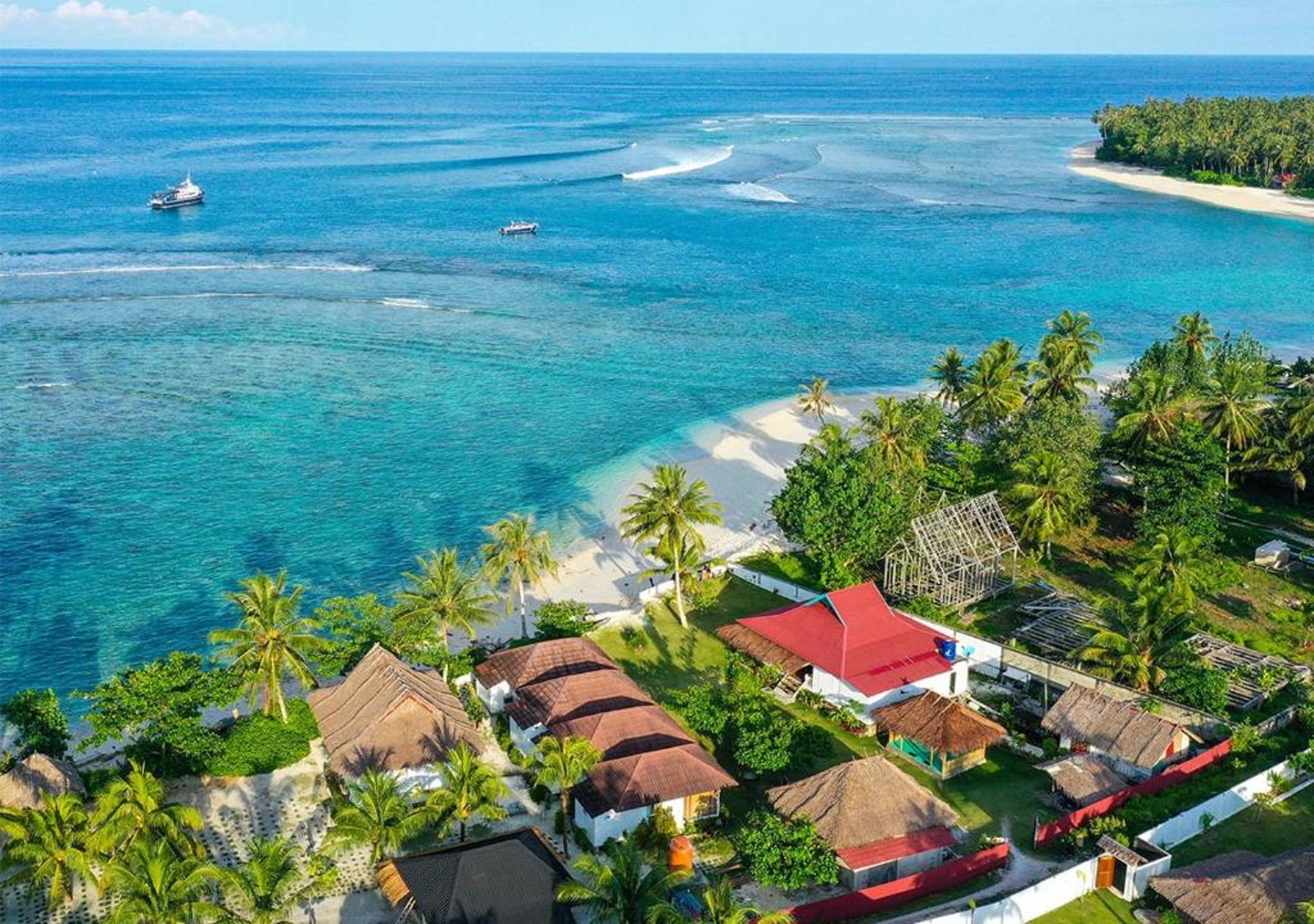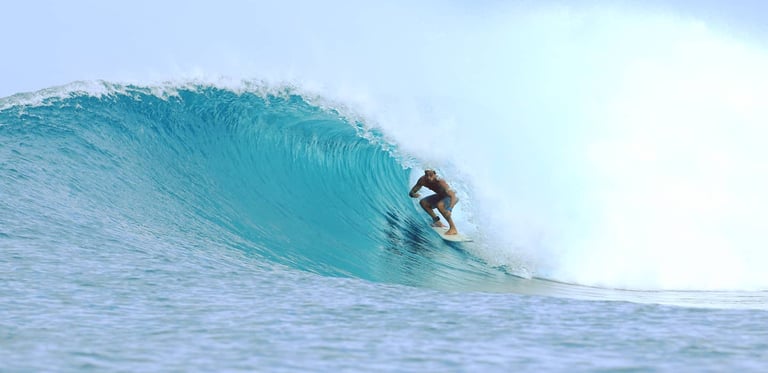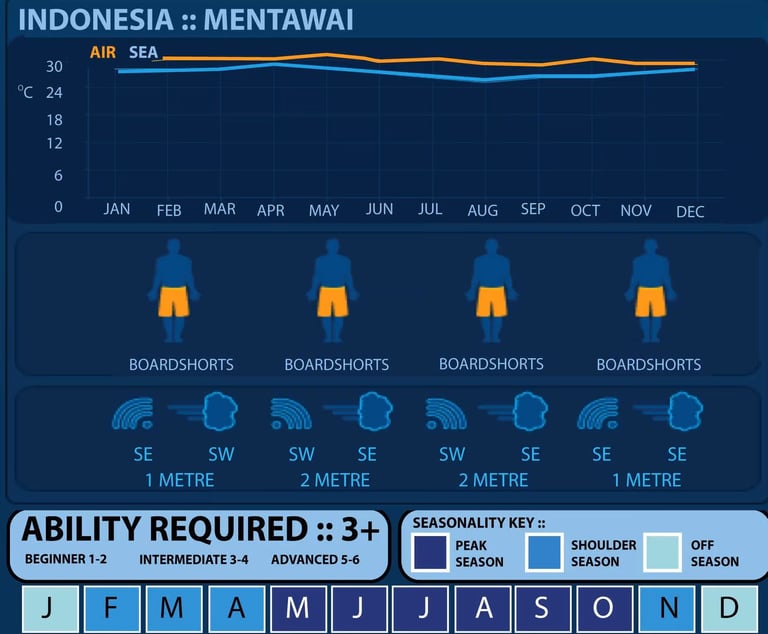
Is It Worth Going to the Mentawai Islands During Shoulder and Off Season?
Overview
For most surfers, the Mentawai Islands are synonymous with perfection, glassy reef breaks, warm water, and world-class waves. But the moment you start planning your dream trip, you quickly realize that almost everyone else has the same idea, and they all come during the peak season.
That’s when the question arises:
Is it actually worth going to the Mentawais in the shoulder or off season instead?
Let’s break down what really happens outside the “prime months,” and whether it might be the smarter move for you.


Understanding the Mentawai Seasons
Peak Season (April–September): Consistent Indian Ocean swells, drier weather, and the biggest waves. It’s also when most surf boats, charters, and resorts are packed.
Shoulder Season (March–April & October–November): Swells are still strong, conditions a bit more mixed, and crowds begin to thin out.
Off Season (December–February): Wetter months with smaller, less consistent swells, but also minimal crowds and much lower prices.


What You’ll Find During Shoulder and Off Season
1. Fewer Crowds, More Waves for You
The biggest difference you’ll notice outside the main season is the peace.
Peak months can get intense with dozens of boats chasing the same swell, lineups packed with pros, and pressure in every set.
During shoulder and off season, however, you’ll often share the lineup with just a few others. Sometimes, it’s just you, your friends, and a world-class wave.
2. Friendlier Conditions for Intermediate Surfers
Peak season brings power and risk.
While that’s a dream for advanced surfers, it can be overwhelming (and even dangerous) for intermediates. Swells can get huge, heavy, and shallow. In the Mentawais, mistakes come with coral consequences.
In the shoulder months, the surf is often a step down in size but still powerful, clean, and consistent. It’s a chance to catch waves that push your limits without scaring you off the reef.
3. Lower Costs and Better Availability
Flights, ferries, resorts, and surf charters all drop in price outside the high season.
You’ll find special deals, easier bookings, and a wider choice of accommodations, plus more personal attention from your guides or hosts.
If you’ve been dreaming of the Mentawais but hesitated because of the price tag, shoulder and off season make it far more accessible.
4. Still World-Class — Just Different
Don’t let anyone tell you that the waves “disappear” in the off season.
The Indian Ocean never really sleeps, and many reef passes work beautifully with smaller swells. Some breaks can actually come alive in shoulder months, offering long, playful rides and forgiving takeoffs.
You might not score triple overhead perfection every day, but you’ll still find waves most surfers would kill for anywhere else in the world.


The Drawbacks (and How to Handle Them)
Of course, it’s not all palm trees and empty lineups.
There are trade-offs, and knowing them helps you plan better.
Less consistency: You might get stretches of smaller surf. A flexible mindset helps to focus on variety and exploration.
More rain & humidity: Bring a light rain jacket and quick-dry gear. The water stays warm, though.
Limited operations: Some camps or boats close for maintenance. Check ahead to make sure your preferred spot confirms availability.
In short: go with realistic expectations, and you’ll probably score.
Who Benefits Most from These Seasons
If you’re an intermediate or beginner , these seasons might actually be better for you.
You’ll still get powerful and clean waves but with less intimidation and competition.
It’s easier to focus on improving your surfing, understanding reef setups, and feeling the magic of the islands without battling crowds of pros for every set.


Tips for a Great Shoulder or Off-Season Trip
Bring a versatile quiver: A slightly bigger board or a twinny for smaller days, and your go-to shortboard for the good ones.
Stay flexible: Give yourself time for weather windows and swell changes.
Choose open operations: Some camps run special off-season packages.
Keep an eye on forecasts: The Indian Ocean can surprise you with perfect pulses even in February.
So… Is It Worth Going?
If your goal is to enjoy the Mentawai Islands without the chaos of peak season, absolutely.
For intermediate and begginer surfers especially, shoulder and off-season trips offer friendlier waves, empty lineups, and affordable prices, all while keeping the same breathtaking beauty and world-class quality the Mentawais are known for.
You might not score the biggest barrels of the year… but you might just have your best surf trip yet.
And before you plan your dates, make sure to check the Mentawai Surf Guide for detailed break info, travel logistics, and season insights.
